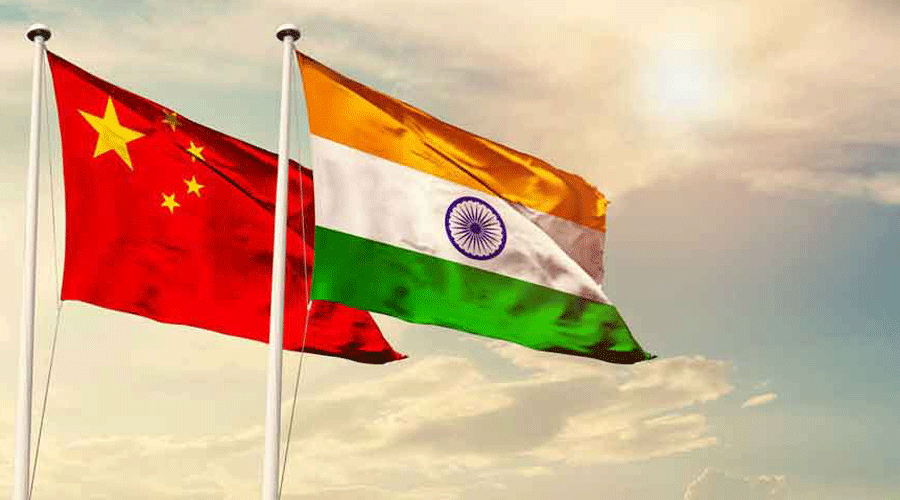Unpack the recent Indian government’s stance on Chinese investments and its ripple effects on various industries and investors.
Source and citation: Writankar Mukherjee and Sharmistha Mukherjee, ET Bureau, June 24, 2024.
TLDR For This Article:
Recent moves by the Indian government suggest a selective easing of restrictions on Chinese investments in sectors like auto components and electronics manufacturing. This could reshape certain industry landscapes and influence market dynamics.

Analysis of this news for a layman:
The Indian government, after initially clamping down on Chinese investments due to border tensions, is now cautiously opening doors again, particularly for joint ventures (JVs) where Indian firms hold a majority stake. This strategic shift is largely motivated by the goal to boost domestic manufacturing under the “Make-in-India” initiative. Press Note 3, mentioned in the article, refers to regulations that require Chinese firms to obtain government clearance before investing, aiming to safeguard national interests while encouraging beneficial foreign collaborations.
Impact on Retail Investors:
- Increased Opportunities: More joint ventures could lead to growth in specific sectors, potentially boosting stock prices of involved companies.
- Risk Management: Investors need to stay informed about which sectors and companies are gaining government approval, as these are likely to present safer investment options.
- Market Volatility: News of approvals or rejections of Chinese investments could cause short-term market fluctuations, impacting portfolio values.
Impact on Industries:
- Electronics and Auto Components: Companies like Dixon Technologies and Uno Minda could see growth opportunities as they expand manufacturing capabilities with Chinese partnerships.
- Consumer Goods: Firms like Haier that are involved in manufacturing consumer appliances might experience growth due to increased capital and technological influx.
- Technology: Enhanced component manufacturing for advanced technologies like smartphones and electric vehicle parts could strengthen the tech sector’s global competitiveness.
Long Term Benefits & Negatives:
- Benefits: Strengthening the domestic manufacturing sector could reduce India’s dependency on imports, improve technological prowess, and create jobs.
- Negatives: Long-term geopolitical risks remain if tensions with China re-escalate, potentially leading to sudden policy reversals and stranded investments.
Short Term Benefits & Negatives:
- Benefits: Immediate injection of capital into approved industries could accelerate projects and increase stock market activity.
- Negatives: The market may face uncertainty as investors and companies gauge the government’s ongoing stance on Chinese investments, potentially leading to speculative trading.
Companies Affected by the New Government Stance on Chinese Investments
The Indian government appears to be selectively approving Chinese investments in India, particularly those with majority Indian ownership and aligned with the Make in India initiative. This shift in policy could benefit some Indian companies and create opportunities for some Chinese companies.
Indian Companies Likely to Gain:
- Haier Appliances India: The company has already received approval for a ₹184 crore investment after a delay due to the previous restrictions. This signals a potential thawing of relations and could pave the way for further investment and growth. Positive market sentiment is likely due to this development.
- Anand Group: The auto component manufacturer has sought clearance for a joint venture with a Chinese partner. If approved, this could expand their manufacturing capabilities and cater to the growing electric vehicle market. Market sentiment could improve due to potential new revenue streams.
- Uno Minda: Similar to Anand Group, Uno Minda’s proposed JV with a Chinese company to manufacture electric vehicle parts could benefit from the new stance. News of the application process could improve market sentiment based on the potential for future growth.
- Dixon Technologies: The company is planning a joint venture with a Chinese company for manufacturing display components and assembling smartphones and televisions. If approved, this could significantly boost their production capacity. News of the filing process and potential approval could improve market sentiment.
Other Indian companies in sectors like auto components and electronics could also potentially benefit if the government approves more JVs that meet the new criteria.
Companies Not Likely to Gain or Lose:
- Companies in sectors unrelated to manufacturing or those without Chinese partnerships are unlikely to be directly affected by this policy change.
Global Companies Likely to Gain:
- Chinese companies in relevant sectors (EV components, electronics manufacturing) with potential Indian partners could benefit if their JV proposals are approved.
Global Companies Not Likely to Gain or Lose:
- Multinational companies outside of the manufacturing sectors or those not partnering with Indian companies are unlikely to be impacted by this policy change.
Overall Impact:
The new approach seems more flexible, and approval appears dependent on specific criteria like Indian majority ownership and alignment with Make in India goals. This could improve market sentiment for Indian companies that receive approval and potentially for some Chinese companies. However, it’s important to note that this is a new policy, and the long-term ramifications are yet to be seen.